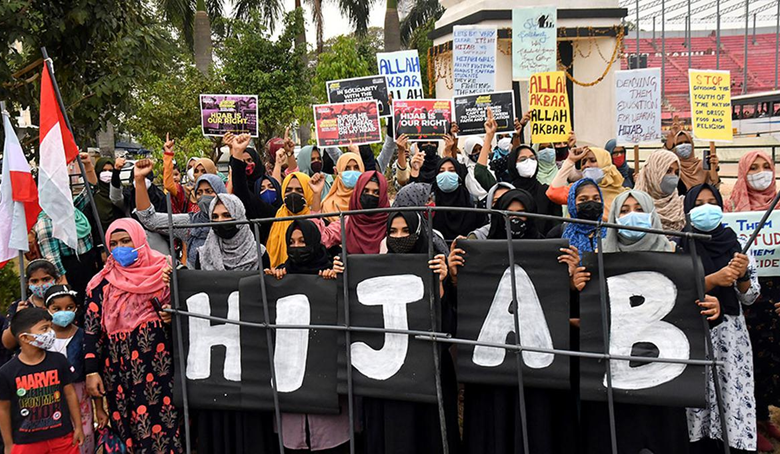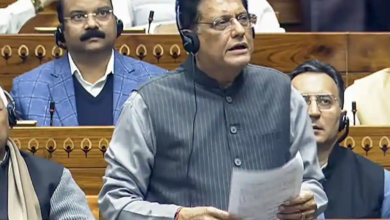SC to Hear Chembur College Students’ Plea Against Bombay HC’s Hijab Ban Ruling on August 9

News Mania Desk/Agnibeena Ghosh/8th August 2024
The Supreme Court has scheduled a hearing for Friday, August 9, to consider a plea filed by students from Acharya Marathe College in Chembur, Mumbai, challenging the Bombay High Court’s decision to uphold a ban on wearing hijab, naqab, and burqa within the college premises. This hearing is crucial for the students, particularly as their term exams have already begun, and the dress code enforcement has created significant challenges for those belonging to the minority community.
The plea, brought before a bench consisting of Chief Justice D Y Chandrachud and justices JB Pardiwala and Manoj Misra, was submitted by lawyer Abiha Zaidi on behalf of the petitioners, including student Zainab Abdul Qayyum. The petitioners are seeking an urgent hearing, arguing that the unit tests commencing at the college are being unfairly disrupted by the enforcement of the dress code. The Supreme Court’s decision to take up the case comes as a relief for the students who are concerned about the impact of the High Court’s ruling on their academic performance.
Three of the nine students who originally challenged the college’s ban in the Bombay High Court have now escalated the matter to the Supreme Court through a Special Leave Petition (SLP). The petitioners argue that the High Court erred in accepting the college’s assertion that its dress code was intended to prevent discrimination. They contend that the court failed to consider the absence of any relevant law or regulation supporting the college’s right to impose such restrictions on students’ attire.
The controversy began in May when Acharya Marathe College introduced a strict dress code for all undergraduate students. The code mandated “formal” and “decent” clothing while explicitly prohibiting religious attire such as hijabs, naqabs, and burqas, which are traditional coverings worn by many Muslim women. This move sparked outrage among students, particularly those from the Muslim community, who felt that the ban was a direct attack on their religious and personal freedoms.
Despite the students’ objections, the Bombay High Court ruled in favor of the college on June 26, asserting that the dress code did not violate the fundamental rights of the students. Following the court’s decision, the college began enforcing the dress code rigorously, evicting not only students wearing religious attire but also those dressed in jeans and t-shirts, which were also deemed inappropriate according to the new sartorial rules. This strict enforcement led to a significant number of students transferring to other institutions, further fueling the debate over the fairness and legality of the dress code.
The case has drawn widespread attention, as it touches on sensitive issues related to religious freedom, individual rights, and the extent to which educational institutions can regulate students’ attire. As the Supreme Court prepares to hear the case, the outcome will likely have far-reaching implications for similar cases across the country, especially in a diverse society like India where religious and cultural practices are deeply intertwined with daily life.
The students’ plea before the Supreme Court highlights the ongoing struggle between maintaining institutional discipline and respecting individual rights, and the court’s decision will be closely watched by educational institutions, students, and legal experts alike.






